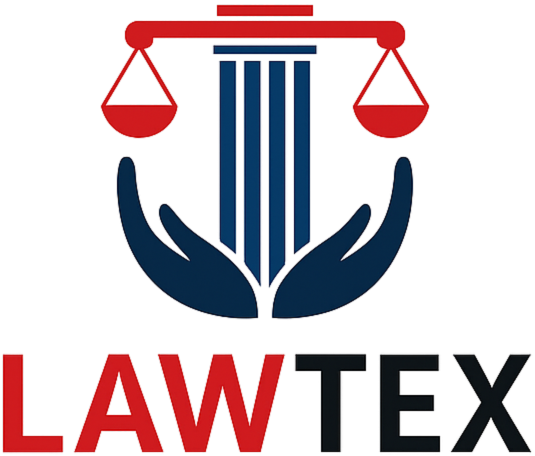Building a Culture of Compliance in a Company: Why It’s Non-Negotiable
Introduction
In today’s dynamic business environment, where regulatory oversight is tightening, stakeholder expectations are soaring, and reputational damage can occur in an instant, compliance is no longer a choice—it’s a strategic imperative. Building a culture of compliance goes far beyond merely avoiding penalties; it’s about instilling trust, fostering accountability, and embedding ethical resilience into the very fabric of the organization.
Companies that proactively cultivate a strong compliance culture don’t just protect themselves they position themselves for sustainable growth, enhanced credibility, and long-term success. In this context, compliance is not a burden, it’s a business advantage.
A genuine culture of compliance is evident when every individual from the boardroom to the front lines consistently upholds legal and ethical standards, even in the absence of oversight. It goes beyond written policies and is reflected in the everyday decisions and conduct of employees, the seamless integration of compliance into internal processes and procedures, and the presence of open, trusted channels of communication.
At its core, it embodies a deep commitment to transparency and accountability. Compliance should not be treated as a one-time exercise or a response to audits and regulatory scrutiny it must be embedded into the operational fabric of the organization. When compliance becomes part of an organization’s DNA, it shapes how business is conducted at every level, every day.
Why Indian Businesses Must Pay Attention—Now More Than Ever
India’s legal and regulatory landscape has undergone a significant transformation in recent years, introducing a wide array of complex and interlinked compliance requirements.
From the Digital Personal Data Protection Act, 2023 to SEBI’s ESG disclosure norms, and from anti-corruption and labour laws to environmental and corporate governance regulations under the Companies Act, 2013, businesses today operate within a tightly regulated environment. Additionally, statutes like the POSH Act, 2013 demand not just policy implementation but cultural alignment within the workplace.
In such a scenario, fostering a strong culture of compliance is not just advisable—it’s essential. Non-compliance is no longer limited to fines or penalties; it can result in regulatory sanctions, director disqualifications, criminal liability, loss of investor confidence, and reputational damage that may take years to undo.
A culture of compliance acts as a safeguard, ensuring that adherence to the law is not occasional or reactive but proactive and ingrained in everyday operations. It signals to regulators, investors, and the public that the organization is committed to responsible, ethical, and sustainable business practices.
Key Steps to Building a Compliance-Driven Culture
1. Leadership Commitment
A culture of compliance starts at the top. Boards, promoters, and senior executives must not only endorse compliance frameworks—they must actively lead by example. Without visible leadership commitment, compliance messages will not take root within the organisation.
2. Establishing Clear Policies and Procedures
Policies should align with the company’s size, sector, and risk profile. They must be clear, easy to understand, legally compliant, and regularly updated to stay effective.
3. Training and Awareness
The goal of compliance training is to empower employees to identify, escalate, and prevent risks in real time. To be effective, training should be scenario-based rather than purely theoretical, conducted regularly—not just at onboarding—and tailored to the specific roles of different teams such as legal, sales, or operations. It must also be delivered in formats and languages that are accessible to everyone across the organization.
4. Establish a Safe and Functional Whistleblower System
Employees should feel safe and empowered to report wrongdoing without fear of retaliation. To ensure this, companies must establish anonymous and confidential reporting channels, define clear escalation protocols, and explicitly prohibit and penalize any form of retaliation. Every complaint should be addressed promptly and transparently. An ineffective or ignored whistleblower mechanism can erode trust and do more harm than not having one at all.
5. Implement Regular Audits and Legal Reviews
Compliance must be dynamic and responsive to change. Regular audits and legal health checks are essential to detect early warning signs, evaluate the effectiveness of existing policies, monitor regulatory updates, and uncover training gaps or control weaknesses. A well-structured compliance calendar, with clearly defined accountability at every level, helps ensure consistent implementation and follow-through.
6. Extend Compliance to Vendors and Third Parties
Vendor actions can expose a company to significant compliance risks. To mitigate this, third-party compliance should involve thorough due diligence at onboarding, clear contractual obligations with indemnity clauses, and regular reviews of vendor practices. Providing compliance training to key vendors also strengthens oversight. After all, an organization is only as compliant as its weakest external partner.
Common Compliance Challenges in Indian Companies
1. Rapidly Changing Regulations – Keeping up with frequent legal and regulatory updates across jurisdictions is complex and resource-intensive.
2. Lack of Employee Awareness – Inadequate training or communication can lead to unintentional non-compliance at various levels of the organization.
3. Weak Internal Controls and Monitoring – Without effective systems to track compliance, detect violations, and enforce policies, gaps often go unnoticed.
4. Third-Party and Vendor Risks – Ensuring that external partners adhere to compliance standards is difficult but crucial, as their failures can expose the company to liability.
Conclusion
In conclusion, building a culture of compliance is not just a regulatory requirement it is a strategic necessity. In an era of increasing legal scrutiny, stakeholder expectations, and complex operational risks, companies that embed compliance into their core values are better positioned to grow responsibly and sustainably. By fostering transparency, accountability, and ethical conduct at every level, organizations not only protect themselves from legal and reputational harm but also build lasting trust with employees, customers, investors, and regulators. Compliance, when embraced as a culture rather than a checkbox, becomes a powerful driver of long-term success.

